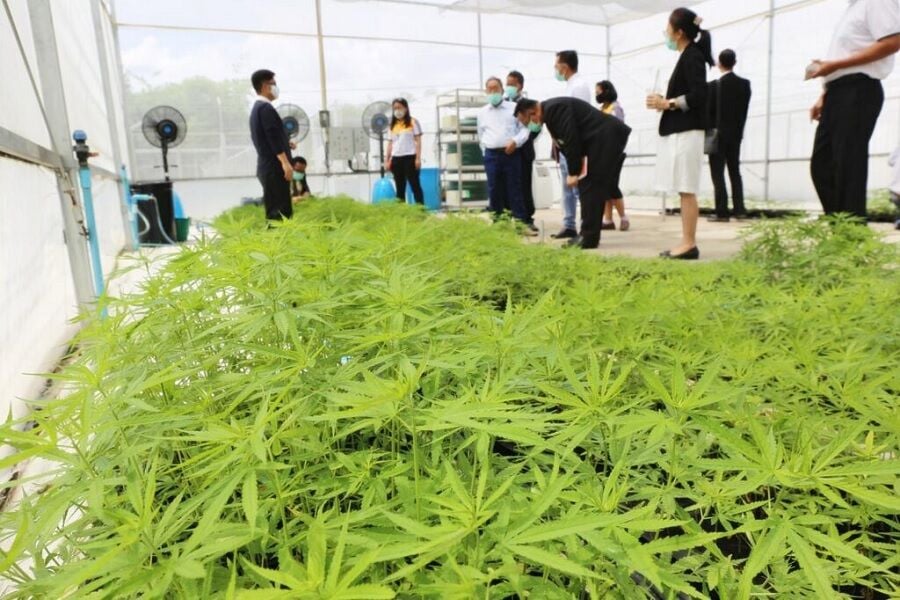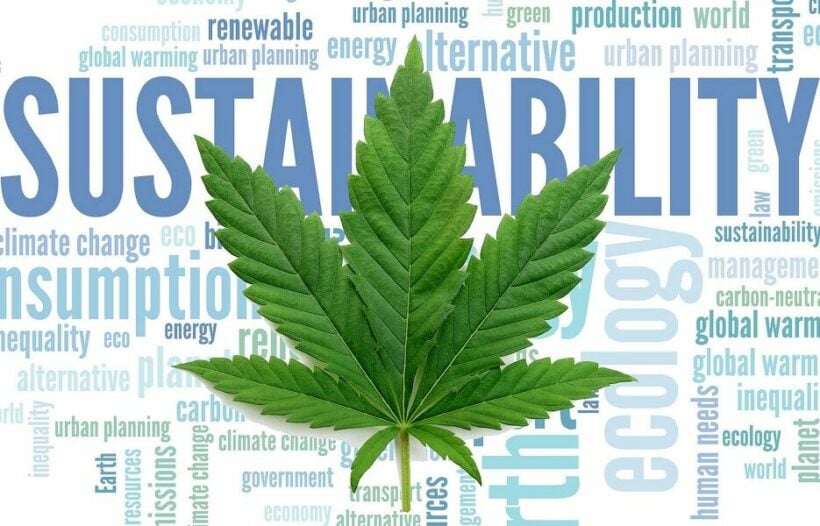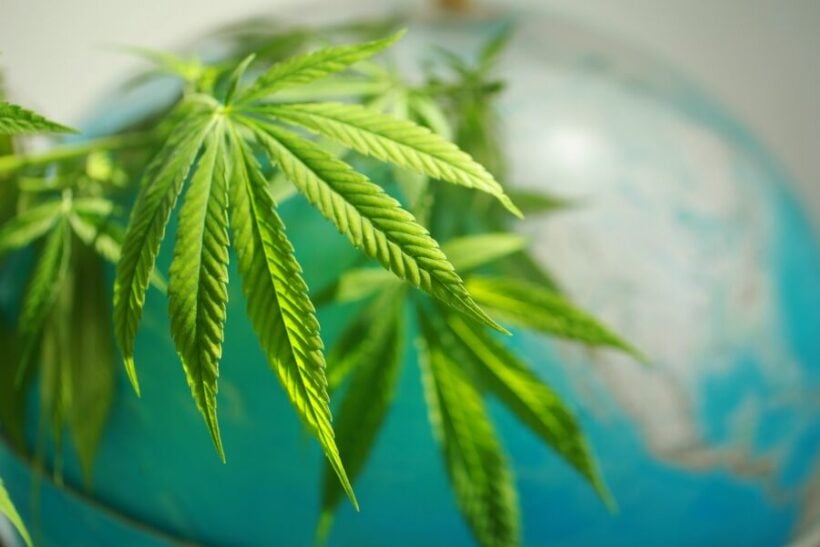Cannabis and conservation: Growing towards a sustainable world

As the cannabis industry flourishes, sustainability becomes a critical factor that can’t be overlooked. You might wonder why. Well, with the rapid expansion of this market, the environmental footprint it leaves behind is becoming increasingly significant. From soil health to water usage and energy consumption, every aspect of cannabis production impacts our planet.
Cannabis sustainability throughout history
As the cannabis industry continues to grow, your awareness and actions towards sustainability can make a significant difference. The environmental concerns associated with cannabis cultivation are not to be taken lightly. By supporting and advocating for sustainable practices, you’re not just helping to mitigate these concerns but also contributing to a movement that values the planet as much as profit. Remember, the choices made today will shape the future of cannabis cultivation.

Let’s ensure that the future is as green as the plant itself. Embracing sustainability within the cannabis industry is not just a trend it’s a necessity that aligns with global environmental goals and consumer expectations. Your role in this journey towards eco-friendly cannabis farming is crucial. Together, we can pave the way for a more sustainable and environmentally conscious cannabis industry.
The growing need for sustainability in the cannabis industry
In recent years, you might have noticed the cannabis industry going through a significant transformation. As the sector continues to expand, the emphasis on adopting eco-friendly practices has never been more pronounced. Let’s delve into why sustainability is becoming a cornerstone for cannabis growers, particularly focusing on regions like Thailand, which are pioneering sustainable cannabis cultivation.
First and foremost, the environmental impact of cannabis cultivation can no longer be overlooked. Traditional farming methods are resource-intensive, relying heavily on water, electricity, and non-biodegradable materials. In Thailand, where eco-friendly cannabis farming is gaining traction, growers are making conscious efforts to align with more sustainable approaches. This includes reducing the use of plastics in packaging, one of the industry’s most pressing issues. By exploring alternative materials like cardboard, glass, and hemp-based bioplastics, they’re paving the way for a greener future.
Moreover, energy consumption in cannabis production sites is another area where Thailand is leading by example. Regulations in certain regions now mandate lower energy usage, motivating growers to seek energy-efficient solutions. The adoption of greenhouses is a testament to this change. They not only harness natural sunlight, thus diminishing the need for artificial lighting but also offer benefits like enhanced climate control, year-round production, and reduced water usage through efficient irrigation systems.
The movement towards sustainable cannabis cultivation in places like Thailand is not just about adhering to regulations or reducing costs. It’s about setting a new industry standard where environmental preservation goes hand in hand with producing high-quality cannabis. As more growers join this green revolution, the future of the cannabis industry looks promisingly sustainable.
Sustainable practices in cannabis production
As you delve into the world of cannabis, it’s essential to recognize the industry’s pivot towards environmental responsibility. Sustainable cannabis cultivation, especially in regions like Thailand, isn’t just a trend but a necessary evolution. Eco-friendly cannabis farming practices are gaining traction, aiming to reduce the ecological footprint while still delivering high-quality products.
Renewable energy integration
One of the first steps many forward-thinking growers are taking is harnessing the power of renewable energy sources. The adoption of solar and wind energy in cannabis farms reduces reliance on fossil fuels, significantly cutting down carbon emissions. This shift not only supports Goal 13: Climate Action but also sets a blueprint for future operations in Thailand and beyond.
Innovative water management
Water is a precious resource, and its conservation is paramount in sustainable agriculture. By implementing state-of-the-art irrigation technologies, such as drip irrigation and rainwater harvesting, growers can dramatically decrease water usage without compromising the quality of the cannabis crop. These methods ensure that every drop goes further, aligning with eco-friendly cannabis farming principles.
Biodegradable packaging solutions
Addressing the waste problem head-on, some companies are revolutionizing their approach to product packaging. The shift towards biodegradable materials significantly reduces landfill contributions, an initiative that resonates well with the ethos of Cannabis Environmental Practices in Thailand. Opting for such packaging not only meets regulatory requirements but also appeals to the environmentally conscious consumer.
By adopting these sustainable practices, the cannabis industry is making significant strides towards environmental stewardship. The integration of renewable energy, efficient water management, and innovative packaging solutions underlines an industry-wide commitment to the planet. As these practices become more widespread, they pave the way for a greener, more sustainable future in cannabis cultivation.
Environmental impact of cannabis production
Growing cannabis isn’t just about planting seeds and watching them grow. It demands a massive amount of resources, from electricity for indoor grow lights to water for irrigation. As you dive into the world of sustainable cannabis cultivation, especially in areas like Thailand, it’s crucial to understand the environmental footprint your activities may leave behind.
Electricity consumption soars in indoor facilities, primarily because of extensive lighting needs. Traditional methods rely on high-intensity discharge lamps, which are energy hogs. Switching to LED lighting not only cuts down energy use but also mimics the natural light spectrum, promoting healthier plant growth.

Water usage is another concern. Cannabis plants are thirsty, and inadequate water management can lead to significant waste. Eco-friendly cannabis farming practices in Thailand showcase innovative irrigation techniques that reduce water consumption without sacrificing the crop’s quality.
The odorous gases emitted during cultivation can also harm air quality. By adopting cannabis environmental practices, such as carbon filtration systems, growers can minimise these smells and their impact on the surrounding area.
Waste generation, from plant by-products to packaging, amplifies environmental concerns. Thailand’s move towards sustainable cannabis cultivation includes exploring biodegradable packaging options and repurposing plant waste into compost or biofuel, significantly reducing landfill contributions.
Should you be in search of cannabis pricing within Thailand, we invite you to explore our comprehensive article, Cannabis Pricing in Thailand: A Route to Fair Market Practices.
Also check out these trends! Cannabis trends in Thailand 2024
Latest Thailand News
Follow The Thaiger on Google News:


























